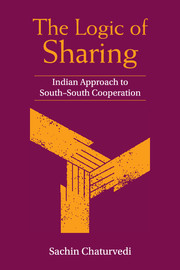Book contents
- Frontmatter
- Contents
- List of Tables and Figures
- Foreword
- Preface
- List of Abbreviations
- Section I Policy and Institutional Framework
- Section II Country and Regional Case Studies
- Section III Summing Up
- 8 The SSC and Global Imperatives
- 9 Expanding Frontiers, New Trends and the Way Forward
- Bibliography
- Index
9 - Expanding Frontiers, New Trends and the Way Forward
from Section III - Summing Up
Published online by Cambridge University Press: 05 March 2016
- Frontmatter
- Contents
- List of Tables and Figures
- Foreword
- Preface
- List of Abbreviations
- Section I Policy and Institutional Framework
- Section II Country and Regional Case Studies
- Section III Summing Up
- 8 The SSC and Global Imperatives
- 9 Expanding Frontiers, New Trends and the Way Forward
- Bibliography
- Index
Summary
During the past decade or so, several new trends have emerged on the global geopolitical and economic scene. Some of them have taken shape over the years, establishing new frontiers for the Indian development cooperation programme. As noted in earlier chapters, apart from an increase in funding volumes, new features and novel modalities have come to define Indian's development cooperation programmes. The new trends are discernible both on the ground, where projects and programmes are delivered, and at headquarters, where governance mechanisms and – more importantly – an institutional framework have evolved. This chapter explores some of the major shifts that have advanced the frontiers of engagement and opened up new avenues for development partnerships. It also looks at possible challenges to be addressed if resources are to be best utilised in the process.
Several new directions have influenced the profile of India's development cooperation programmes. In this regard, the effort to reach out to partner countries’ communities and CSOs, along with local governments, in the implementation of development programmes has been extremely well-received. Secondly, the establishment of the DPA is expected to ensure optimum resource utilisation for greater returns, with a due role reserved for territorial divisions in the MEA. Its efforts in consolidating country- and region-specific information and analysis will make this possible. The third major move is a greater push for S&T and the fourth, and most important, addition is the rise in total allocations and expenditure by the government (although MoF has yet to insulate these allocations).
There are areas of concern as well, which in due course may pose major challenges to the development partnership programme. At the practical level, they need to be addressed adequately and wholeheartedly so that the programmes become more enduring and resilient. First and foremost in this list is the health of Exim Bank, which is of key importance to the LoC programme. Even though the Cabinet has amended the 2005 policy to allow other public sector banks to extend LoCs, it is still the Exim Bank that dominates the field and any major default on a LoC would have crucial implications for it. It is therefore extremely important that all possible sources of potential trouble be addressed before it is too late.
- Type
- Chapter
- Information
- The Logic of SharingIndian Approach to South–South Cooperation, pp. 189 - 202Publisher: Cambridge University PressPrint publication year: 2015



